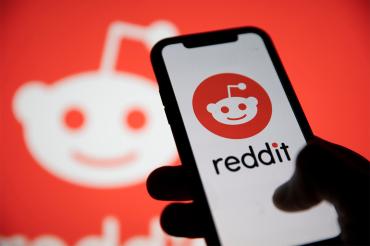Influx of right-wing users led to much greater Reddit polarization before 2016 U.S. election: U of T study

(Photo by InkDrop/Shutterstock)
Published: December 2, 2021
A rise in political polarization on Reddit forums before the election of Donald Trump was driven by new, largely right-wing users, University of Toronto researchers suggest in a new study.
The paper, published this week in Nature, challenges the theory that polarization on Reddit was primarily caused by existing users who became more extreme through membership in online echo chambers.

“Polarization on Reddit was disproportionately driven by new users appearing on the platform, and the effect was quite substantial,” says Ashton Anderson, assistant professor in the department of computer and mathematical sciences at U of T Scarborough and lead author of the study.
“We saw some existing users becoming polarized in 2016, but the effect was really driven by new users who joined the site closer to the right-wing extremes than existing users.”
It’s been suggested that being part of like-minded online communities such as Reddit can lead to polarization, but what isn’t clear is whether existing individual users are influenced to move towards more ideological extremes, or if it’s new users joining these communities that causes the effect.
Anderson and PhD student Isaac Waller developed a machine-learning technique to assess social stances, including political leanings, across 10,000 different subreddits – or online communities within Reddit – from a sample of 5.1 billion comments over 14 years.
They found that the political activity of individual users did not become significantly more polarized over this period, but that the platform as a whole did become more polarized around the time of the 2016 election. The 2016 change in platform-level polarization was 2.17 times what it would have been if new users “arrived at the average 2015 polarization level, despite only accounting for 38% of political activity
during 2016,” the researchers wrote.
“What we’re seeing here is that platform polarization is not being driven by people themselves changing. Rather, it’s the composition of the platform that’s changing,” Anderson says.
He points to the rise in popularity of r/The_Donald, a subreddit created in 2015 dedicated to discussing and promoting Trump. (Reddit removed the subreddit after the Capitol Hill attack, saying it violated its policies against promoting hate and inciting violence.) Anderson says, as online communities grow, they generally move towards the centre as they become more diverse. But r/The_Donald remained near the extreme right-wing.
“Reddit genuinely changed in the sense that the political activity on the site was increasingly becoming more homogeneous and moving farther and farther away from the centre,” he says.
While these new users shifted right-wing discussion further to the right, the researchers found that activity on left-wing and centrist communities barely became polarized at all. Some polarization did happen on the left, but Anderson says the effect was nowhere near as large as that experienced on the right.
The researchers note that the new users driving this polarization only accounted for a fraction of activity on the site. “They were a minority of the users, but they drove the majority of polarization during that period,” Anderson says.
Anderson says the method developed in this study can also be used to quantify the social make-up of other online communities. He says this can help better understand the social contexts of online behaviour, such as toxic language being used in predominantly old or young communities, and to inform the design of other online platforms.
The findings suggest that an increase in polarization may come down to changing dynamics of a specific population, rather than a broader, society-level change in beliefs.
“Sometimes, especially in these online communities, it might not be that people within the community suddenly move toward these partisan extremes,” he says.
“Large-scale polarization, at least in online communities, might simply be caused by a turnover in the people using them.”



